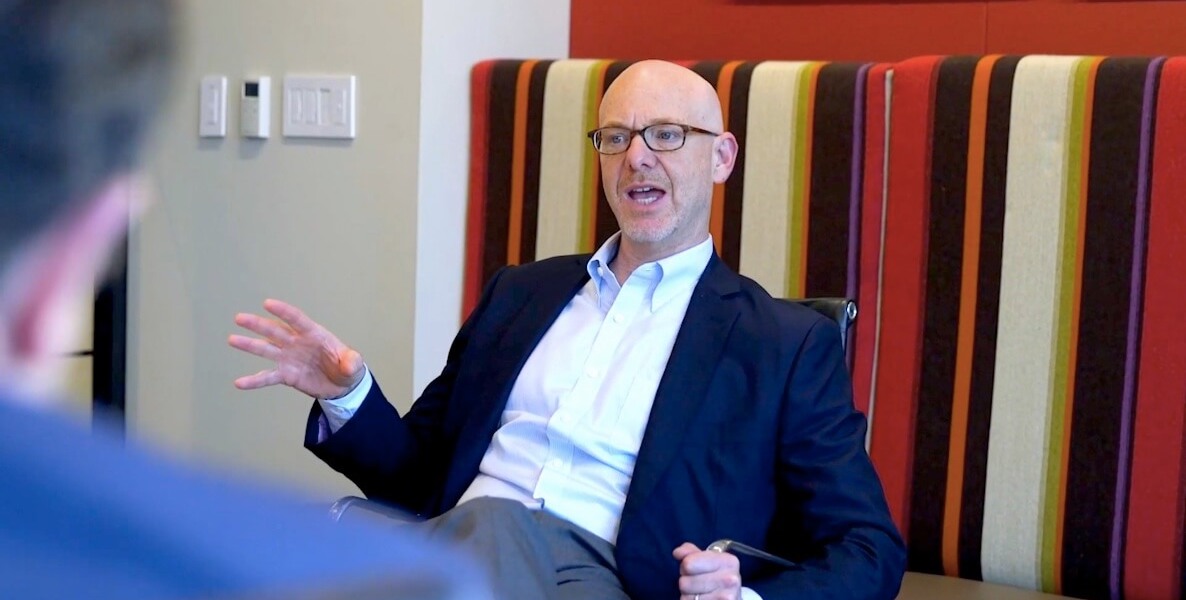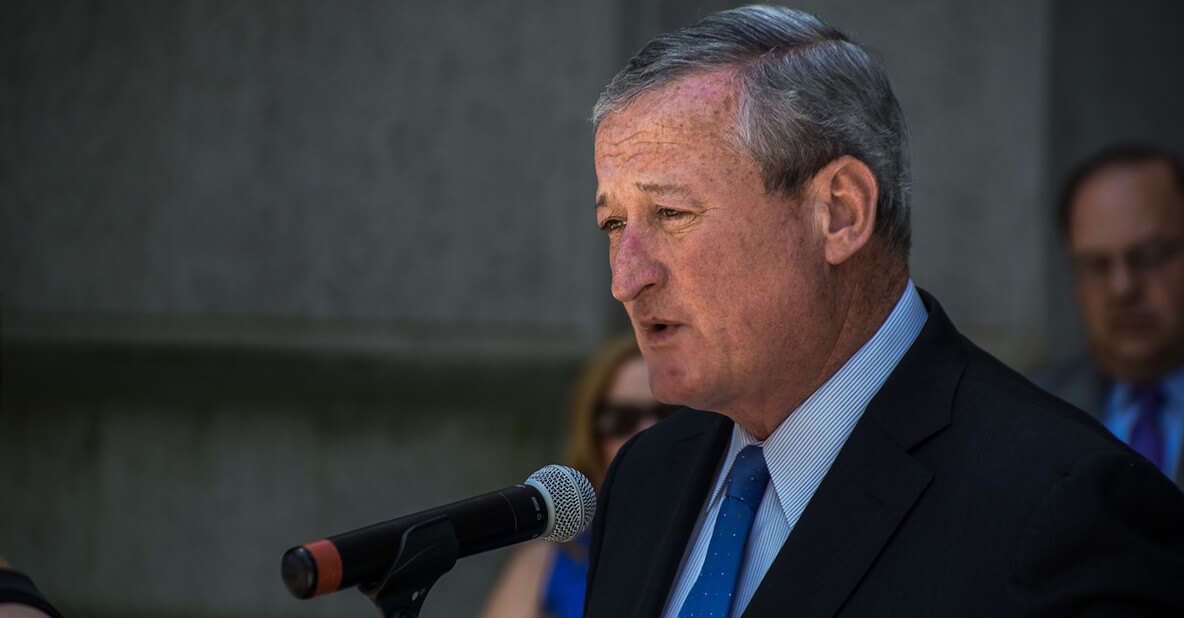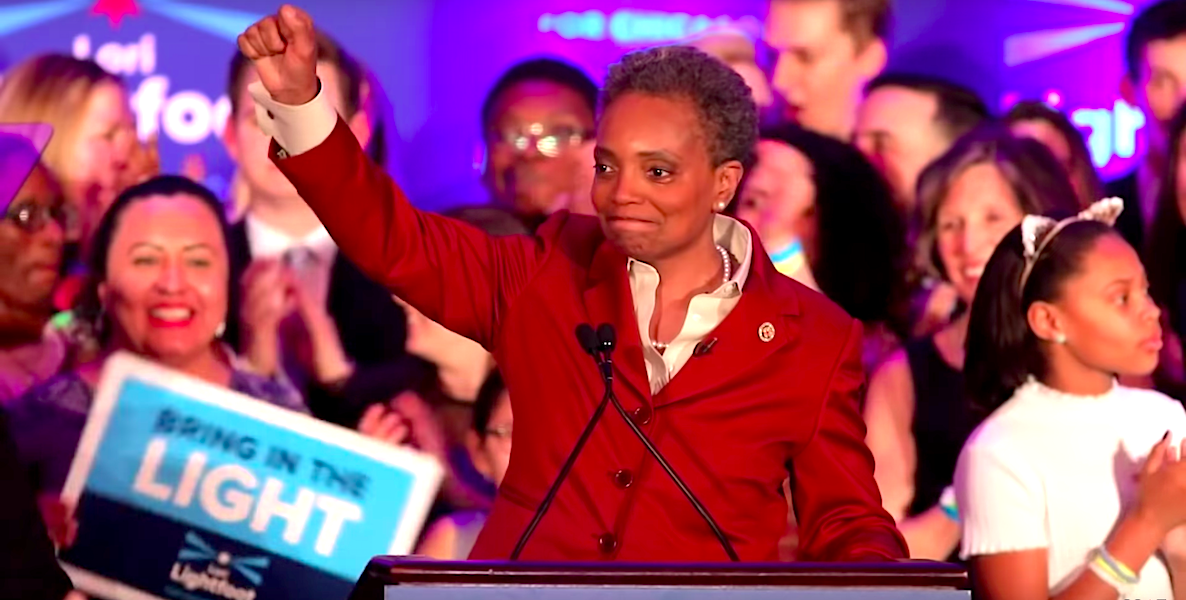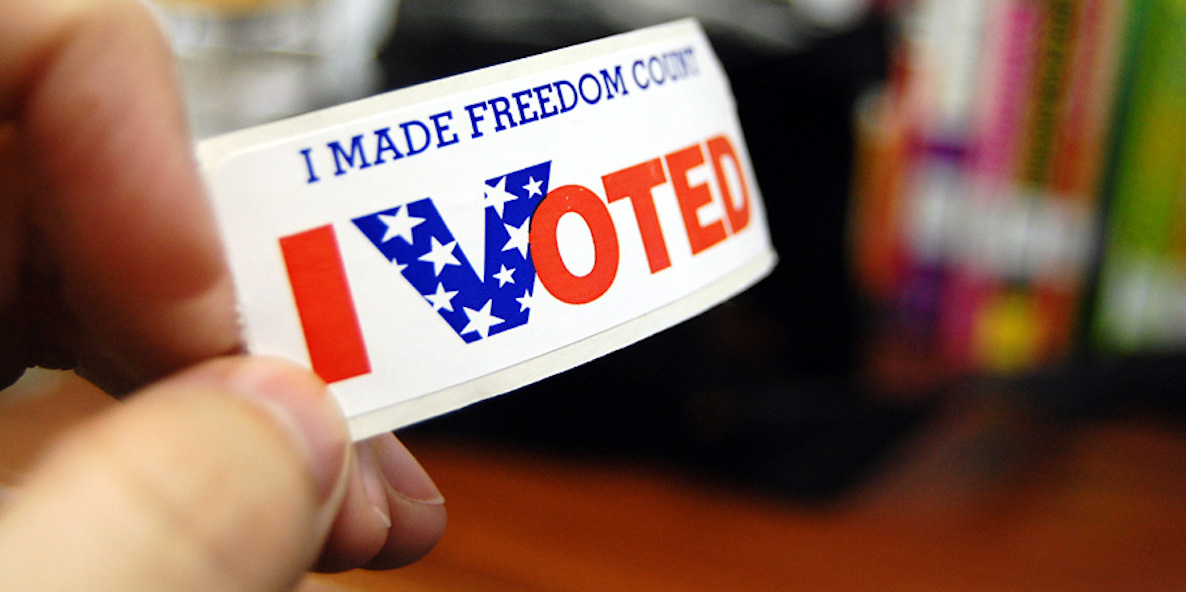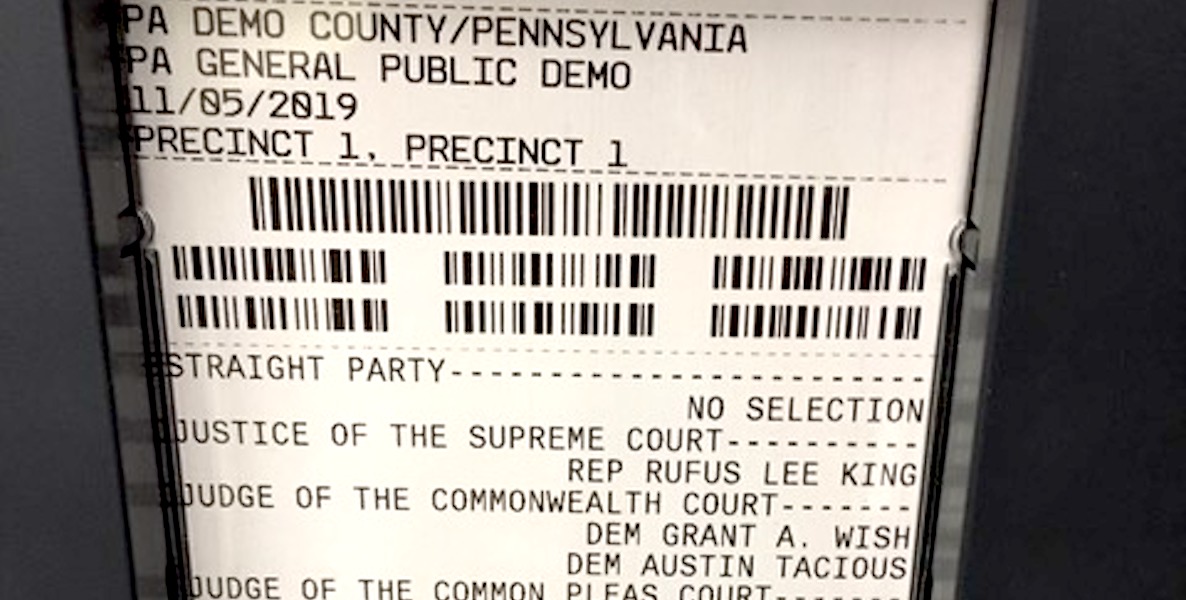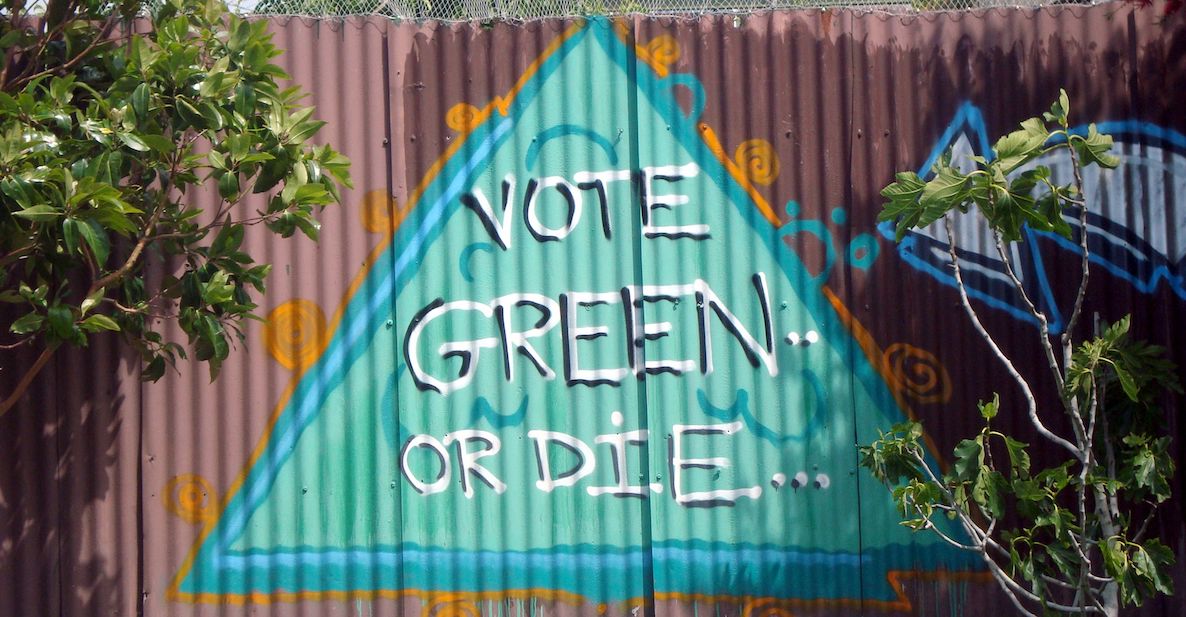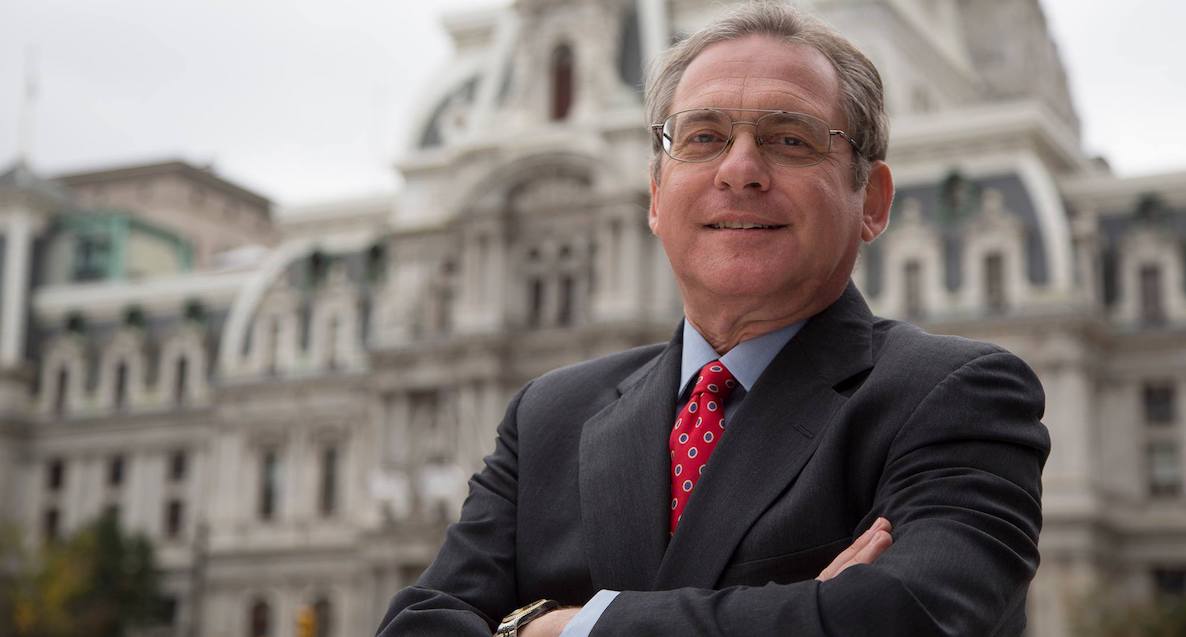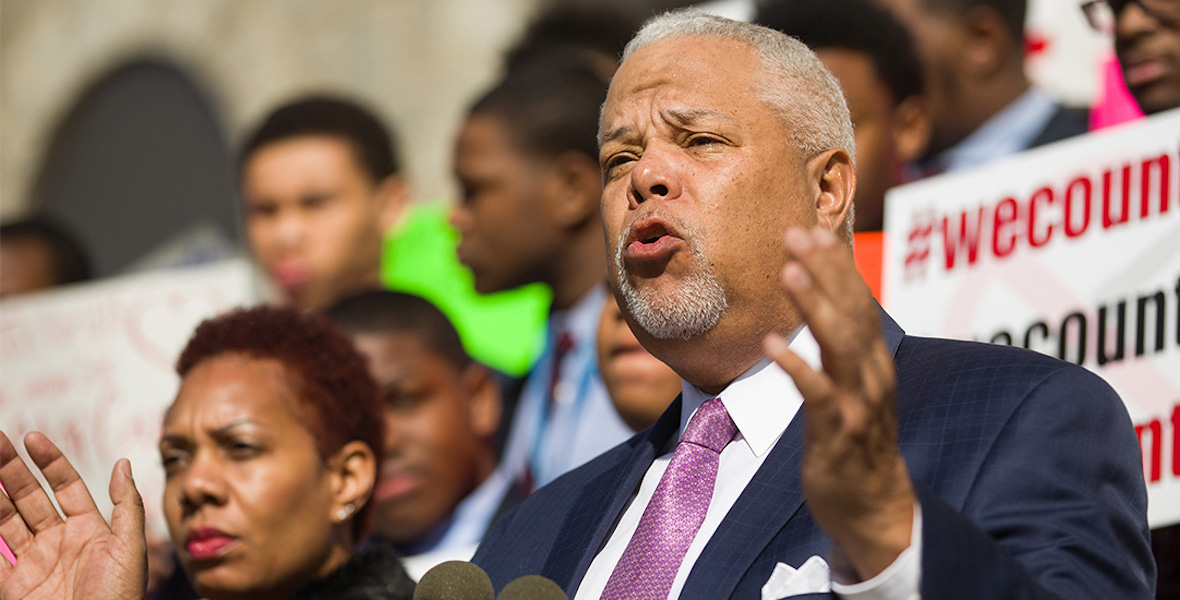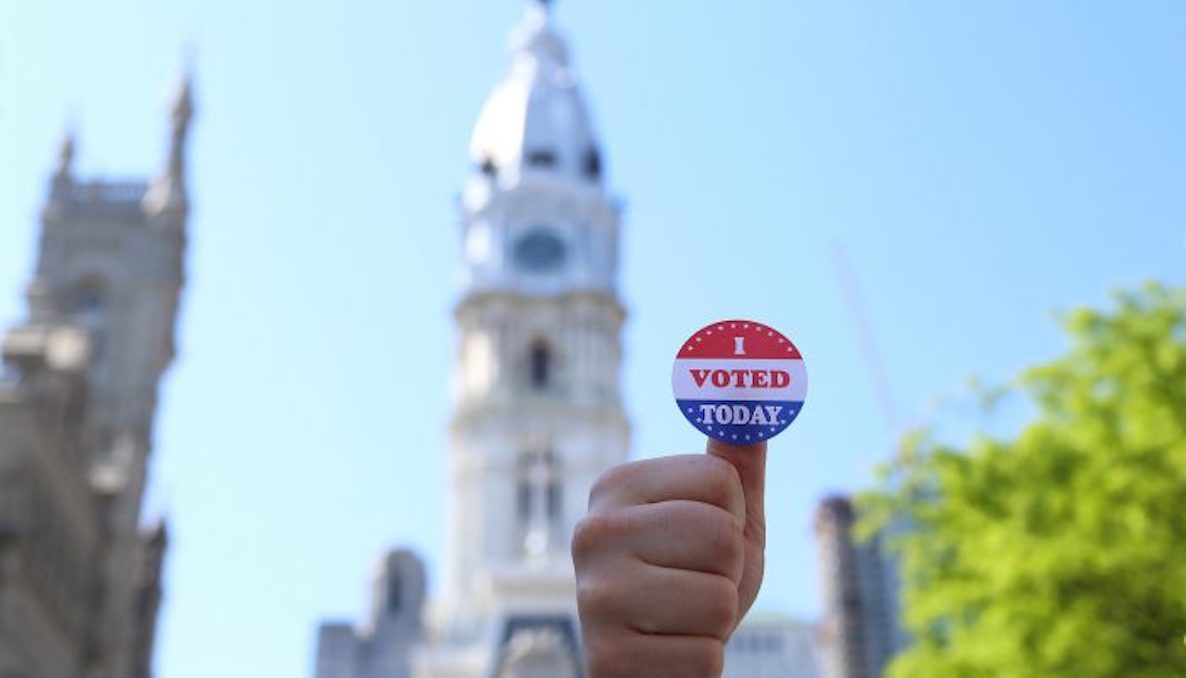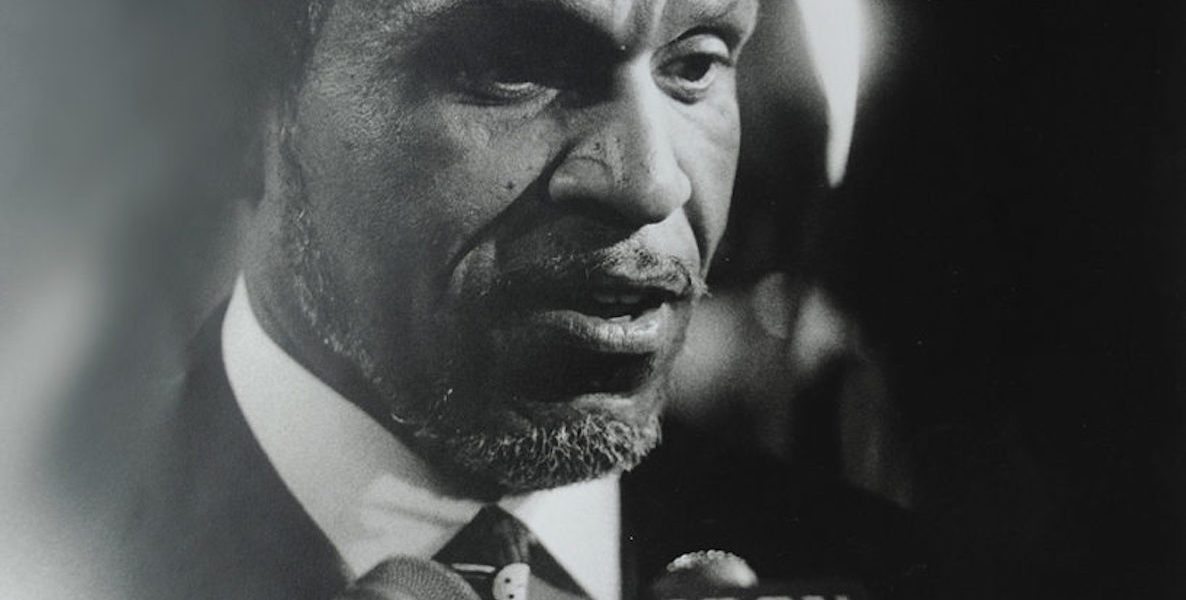It’s a pretty exclusive club, the league of Philadelphia’s living ex-mayors: There’s Bill Green, Wilson Goode, Ed Rendell, John Street, and Michael Nutter. Never before has one of them come forth after serving and asked the electorate to vote against the current occupant of the office they once held. But now one has.
John Street, a one-time outsider activist-turned president of City Council-turned two-term Mayor, has not only endorsed State Senator Anthony Williams in his bid to unseat Jim Kenney, he’s waded into the issues and held press conferences to lay out his withering brief against the incumbent Mayor. I sat down with him last week to discuss his displeasure with Kenney and explore his vision for the city he still loves.
Street is now 75, and still living in North Philly. In the 11 years since he left office, he’s taught government and civics at Temple University, and—ever the noncomformist—can often be seen around town, riding his bike, wearing sweatsuits and a dusty baseball cap. He seems to delight in being mistaken in office towers for custodial staff; “I’m always being profiled,” he chuckles.
I was a good government critic of Street’s during his mayoralty. In recent years, we’ve met for breakfast, or just sat together on a park bench, probably once or twice a year, and I’ve been taken by his good-natured wisdom—perhaps at a certain stage in life, it doesn’t make much sense to sweat the small stuff—and his vast political smarts. He wasn’t a charismatic backslapper, like his predecessor Rendell, yet he was one of Philadelphia’s most successful political leaders, winning 14 of 14 elections throughout his career.
In his political prime, Street was a mix of contradictions. He was, by turns, a bare-knuckled political brawler, a big city liberal who focused on revitalizing long overlooked neighborhood corridors, and a fiscal conservative, who, during his tenure, shrunk the city workforce by some 1,000 employees. To hear his opponents tell it, he presided over a corrupt government, though he was never accused of either a crime or an ethics violation.
In the popular narrative, Street was often described as “prickly,” and he does concede that he used to tell opponents and allies alike: “I can’t do stupid. I cannot do stupid.” But he’s also always been authentically himself, and in an active state of becoming. He was a street smart activist who stormed the gates of Council—once wrestling with a colleague on the floor—who went on to master the intricacies of budgeting and parliamentary procedure. He was, in other words, an outsider who, once inside, took over the government by beating the establishment at its own game. And that’s where our conversation began, with Street expressing concerns that today’s change agents lack the political smarts to actually get stuff done.
“Because of the coalition that elected him, the Mayor had a golden opportunity to show that he was going to be the mayor of all the people. But he has not been a mayor that the African American community and the Latino community can look at and say, ‘Here’s a guy that took care of our neighborhoods.’
LP: When we last spoke, I remember you were critical of the new crop of young political aspirants who were seeking to upend the political process. Do you still have those concerns?
JS: If you want to change the city, you’re going to have to start where people are. There was this old saying that we used to hear all the time: People don’t care how much you know until they know how much you care. And people are not going to figure that out unless they see you out in the trenches, trying to deal with their everyday problems. A lot of the young activists today? They have no idea why there’s resistance to bike lanes. Now, I’m for bike lanes. I ride—I rode 5,000 miles one year. But cyclists are the most reckless people in the world. I never saw a traffic signal that I thought was applicable to me. They were, like, minor suggestions. You stop to keep from getting hit. You don’t stop because there’s a sign.
My point is, if you’re for bike lanes, you’ve got to spend time doing your political homework about it. They’re critical of Councilwoman Blackwell, but she’s getting beat up by long-term residents who say, ‘I don’t want to get out of my car and walk into a bike lane.’ You’ve gotta talk to the people you disagree with.
LP: Your point is that politics isn’t about winning an argument. It’s really about finding common ground among competing interests, right?
![]()
JS: That’s right. I have actually talked to the chairman of the political science department at Temple. We need to have some political boot camps, where people who have a real interest in politics can start figuring it out. Too many engaged young people have no idea how Council really works. The other thing is, in my class, I do two or three weeks on activism. After Trump, everybody was protesting and demonstrating. And I went to at least three of these big events. There was not a single voter registration table. Not one. At one event, they allegedly had 50,000 people. But they didn’t register one person to vote.
LP: It really is unusual for a two-term mayor to endorse a challenger. How do you make the case for Tony Williams?
JS: I have been spending a lot of time with him, and he is for some really serious changes in the way we govern. I have heard him say, “It makes no sense for City Council and the Mayor, today, to be operating under a Charter that is 70 years old.” He’s for line-item budgeting. He’s for a report at the end of the budget year that lets people know what we said we were going to do, and what we did. I have asked consecutive controllers for public information about various contracts, and it takes forever to get it. There’s no central registry. Now, I know [Controller] Rebecca [Rhynhart] is trying to clean up some of that stuff. But we are lurking in the dark ages of budgeting. And the current administration is as bad as any administration I’ve seen. The current Mayor wants to spend a billion dollars more this year than Nutter spent in his last year. A billion dollars. How do you spend a billion dollars and the roads are this bad, and the streets are unsafe and dirty? Murder is up. What are you doing with a billion dollars?
I have discovered, working with [former Controller candidate and good government activist] Brett Mandel and Senator Williams that there are about 860 more city employees on the payroll then there were when Nutter left. Where are all these additional people? The police don’t have enough resources, yet in the mayor’s current budget, he proposes hiring 50 cops. That’s roughly two and a half hours per shift, per each of the 21 districts. Aren’t you feeling safer?
“I think he got 45 percent of the African American vote. But now he’s got an administration that doesn’t look like the city. I jokingly say that it’s easier for a Black person to get into a Kenney commercial than it is to get in the Kenney administration.”
LP: But can’t you make a case like this against any incumbent? What has Jim Kenney done, or not done, that warrants essentially firing him?
JS: Because of the coalition that elected him, the Mayor had a golden opportunity to show that he was going to be the mayor of all the people. But he’s let down the Black voter and our neighborhoods. He has not been a mayor that the African American community and the Latino community can look at and say, “Here’s a guy that took care of our neighborhoods.”
I think he got 45 percent of the African American vote. So people said, ‘Okay, let’s give him a chance.’ But now he’s got an administration that doesn’t look like the city. I jokingly say that it’s easier for a Black person to get into a Kenney commercial than it is to get in the Kenney administration. He said part of the reason why he doesn’t have Black people is because they don’t want to work for the city for the money, or something like that, which is just offensive. He does not like to go to the neighborhoods. And when he does, he wants to go to a ribbon cutting and get right out. It’s hard to figure out what’s going on in your city if you’re not going out into neighborhoods. And your administration will very quickly get out of touch.
![]()
To be frank, I can’t think of one group that he has delivered for. He certainly hasn’t delivered for Center City. You can ask any one of the Center City business people, they will tell you that they are very unhappy with this mayor, who has allowed homelessness to get out of control. You can’t have a thriving Center City if you don’t provide adequate resources and services for people who are in need. And you don’t want to provide those services while they are on the street.
LP: Did you express these concerns to the Mayor before publicly criticizing him?
JS: I have had conversations with him that I regard as being confidential. And look, I’ve had conversations with probably 11 or 12 Council members during the course of this term. And one of the reasons people talk to you is because they can find out how you feel in a confidential kind of way. So I don’t report any of the conversations that I’ve had. Up until the time when I had to make a choice about where I was going to be in this election, I haven’t said a damn word. But at some point, you need to decide, do you think the city is going in the right direction or the wrong direction?
LP: That sounds like you decided to publicly advocate against the Mayor as a matter of principle. But an Inquirer article after you endorsed Williams suggested you were motivated by Kenney’s canceling of a city contract that had gone to your friends and political allies.
JS: I had an endorsement press conference, which never got properly covered. And I never mentioned that contract. That contract came up in a question. I didn’t have an interest in that contract. I know some of the people that are in it. I never did any work for them, but it’s a big contract and you should never be taking those contracts [away] from minorities. That was the largest minority contract ever given in the city. My issues with Kenney, frankly speaking, are about minority participation in a general way.
LP: What always intrigued me about you is you were fiscally prudent. You didn’t just tax and spend. You paid for your signature program, the Neighborhood Transformation Initiative. Do you worry that that “pay as you go” principle has been lost?
“In this city, you have to be willing to do hard stuff. You have to provide a level of leadership, and you do it in conjunction with your partners and your values.”
JS: Absolutely. Look at the way the Mayor has manipulated the assessment situation. It is disgraceful. How many real estate tax rate increases did City Council approve? It doesn’t take many fingers to count to zero. None. Yet, in the current five-year plan, there’s all this revenue that came solely from property assessment increases.
LP: It’s a stealth tax, in other words?
JS: It’s a backdoor tax. In fact, Councilmen O’Neill and Domb have a bill that will revenue neutralize these tax increases. The Charter never envisioned a Mayor and a Finance Director and an Office of Property Assessment person just kind of saying, “Okay, how much do we need today?”
The Mayor and the Finance Director are always looking for money. The Charter requires that the person who is responsible for estimating revenues is the Finance Director. Well, that means that the Mayor is responsible. Because anybody who sits at my pleasure is going to do what I say. And if he doesn’t, then I can replace him. So when the Mayor wants some money—instead of making the hard budgetary decisions—they can just raise assessments. And poor people in gentrified neighborhoods are getting hit with these whopping tax increases.
This mayor has tried to layer on top of everything Nutter did. You can’t do it that way. No choices. He just piled it on. I have had many a conversation about this, and I always refer to my father’s farmhouse and the hedges. Every five years, the hedges were about 20 feet tall and you couldn’t get to the top of them. And my father would just trim them back. He’d cut them almost to the ground. And I used to think they were going to die. But they’d grow back out. That’s the way budgets are. Budgets grow. And every eight years, a mayor is supposed to pare it back. Rendell pared Goode’s budget back. Like you said, I internally funded NTI. We didn’t just pile everything on top of what was already there. Budgets announce priorities. I know this State Senator, he’s actually a friend. Okay, he’s my son, right? And I talk to a whole bunch of other people. “What’s the mayor’s agenda?” I ask them. And nobody is really sure what the mayor is trying to get out of Harrisburg.
If somebody said, what’s the city’s economic development strategy? Nobody knows. Bike lanes don’t create jobs. Safe injection sites don’t create jobs.
Nobody thinks the Mayor really likes being mayor. You know, nobody thinks he’s a bad guy. I don’t think he’s a bad guy. But do I think he is a good mayor? No. I think he has some failures.
LP: When asked for his signature accomplishment, the Mayor has pointed to the soda tax. I take it you disagree?
JS: It’s a very regressive tax. It’s costing us jobs. And just as importantly, it creates a level of anxiety and frustration about living in the city. A lot of people go outside the city, and they do all of their shopping there.
LP: That’s the argument Jeff Brown made when he closed a Shop Rite that was near City Line Avenue.
JS: He’s telling the truth. I don’t drink soda. If I drink anything, I drink water. And I buy those little packets. It’s a flavor additive, and it sweetens the water, but you don’t pay the sugar tax on it. So you get it, and you put a little lemon in it, or a little lime or something, and you have a non-carbonated diet drink. So I don’t really pay it, but people who do, they hate it and they will go out of the city to get around it. It’s costing us jobs.
![]()
But the bigger point is you really need a serious economic development plan. You need a plan that’s calculated to get people in. We have a very high tax burden. I have not heard the Mayor talk about trying to get it down, about trying to deal with the wage tax. So we don’t have any significant tax reduction program. We tax what can move.
He has not had a recession. The economy has been good and the Mayor has been raising a lot of money with the back door tax. And we have a rainy day fund balance of over $100 million. The only people that care about that are Wall Street people who will give you a little better interest rate on your borrowing.
In this city, there has been a 26 percent increase in homicides in the three years that Kenney has been mayor. 26 percent. Those people in those neighborhoods don’t care about your rainy day fund. What they say is, “It’s raining in my neighborhood, why don’t you do something about crime and violence?”
In the true spirit of candor, let me say one thing: When I was Mayor, we did a lot of work in neighborhoods, and cleaned vacant lots. Got the cars out. Shut down the open-air drug markets. And then created opportunity for people to come and build. But the one thing I thought we didn’t do a good enough job on is the streets, paving and potholes and all that. I made some pretty tough judgements that we were going to invest in neighborhoods. And in some ways I thought the streets couldn’t get any worse. But it did get so much worse. I really feel bad about that.
“Tony Williams has said it makes no sense for City Council and the Mayor, today, to be operating under a Charter that is 70 years old. He’s for line-item budgeting. He’s for a report at the end of the budget year that lets people know what we said we were going to do, and what we did.”
LP: Certainly, the Mayor would point to regaining local control of the schools as an accomplishment. You’re the Mayor who famously said to Harrisburg, “Fund it or run it.” Where are you on local governance?
JS: The School District of Philadelphia is like a car that’s goal is get to Florida. It only has enough gas to get to South Carolina. And so the solution was to change drivers, which is not going to get you any more gas. A Republican came up to me and said, Republicans in Harrisburg are loving this—
LP: Because it lets them off the hook?
JS: It lets them off the hook. This is one of those cases where young people who are well intentioned were pushing him, saying, “We need local control.” Well, I’ve asked people, “Do you think Joyce Wilkerson is a better Chairperson of the Board now that she is appointed by Kenney, and not appointed by Wolf? I’m sure she’s better now, right? And what about Hite? I’m sure he’s doing a better job too, now that he’s appointed by a local board.”
So he took over the schools. He now has the primary responsibility for funding them. And where’s that plan? They say in education, money isn’t everything. To which I respond, “It might not be everything, but it is way ahead of whatever comes second.”
LP: If Jim Kenney were to ask your advice, what would it be?
JS: Well, Tony is mature enough to already understand this. In this city, you have to be willing to do hard stuff. You have to provide a level of leadership, and you do it in conjunction with your partners and your values. When I shut down 309 open-air drug markets, certain people were critical of that because they wanted more tax reductions. I said people in our city can’t walk to their corner store. I said we need to do this so people can live in our neighborhoods. People saw what I stood for.
LP: What would you point to as an accomplishment of the Kenney administration?
JS: [Pauses] There are a lot of things we could be doing. But what we are getting out of this administration is kind of business as usual. I can’t think of one really creative idea, something that’s really different. Think about that: Not one creative idea. A soda tax is not creative. Bike lanes are not creative.
LP: Finally, Mr. Mayor, race is not only our country’s original sin, but also our city’s. Have we made progress, from a political standpoint?
JS: Remember, Philadelphia is unique. We have a tradition of being very independent on race when we want to be. The African American community was duty bound and determined to elect a black mayor. And we did. And then we had a white mayor. And then people said there’s never going to be another black mayor. And then there was a black mayor, and there was another one. And then there was a white mayor. No one can take comfort that, simply because you’re white or black, you’re going to get the democratic nomination.
You asked about advice for the Mayor. Well, it behooves anyone, white or black, who wants to run for public office to try to get a set of values attached to them, some priorities and some public service positions on spending and activities, and then just go do that. Just go do that. And the people will see you’re on their side.
John F. Street was the 97th Mayor of Philadelphia, serving from 2000 to 2008. This interview was edited and condensed.




